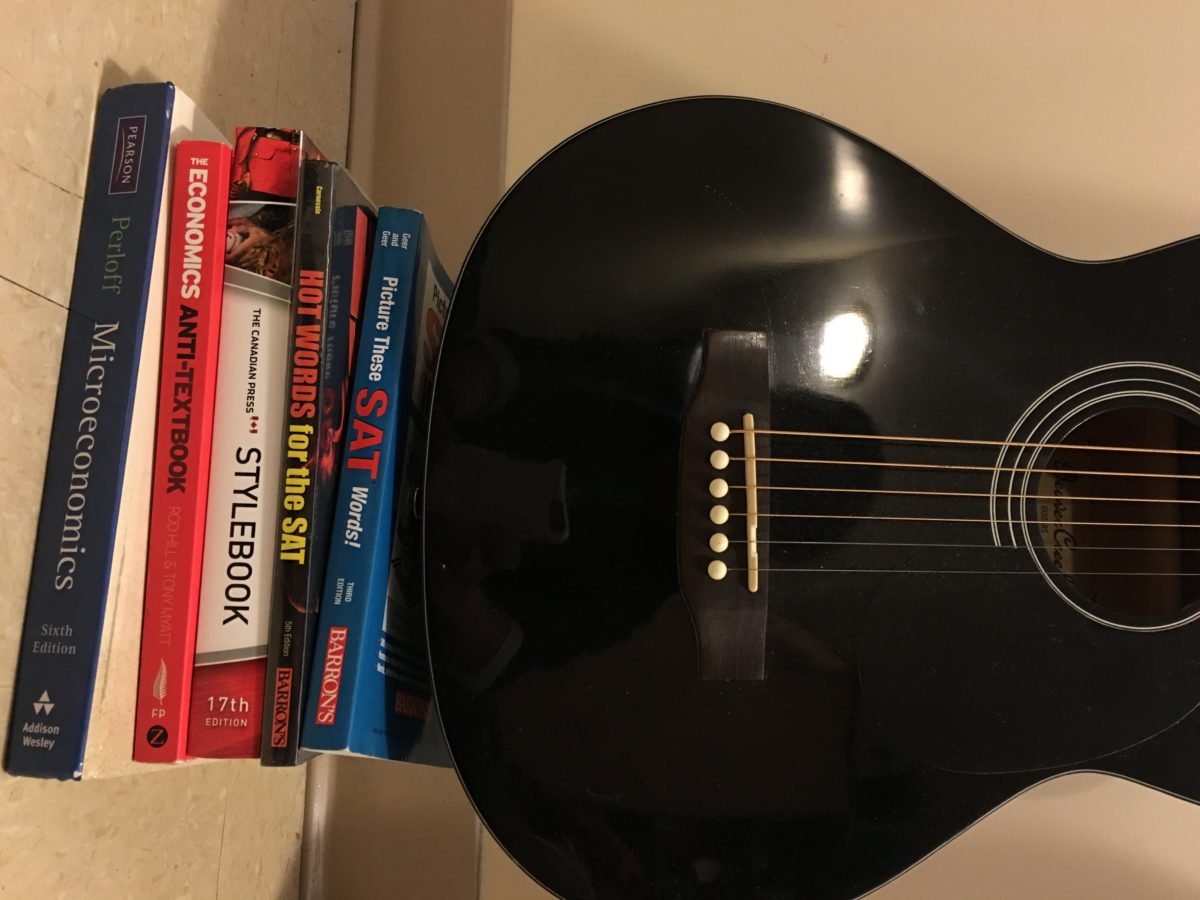By the time Samuel Rocha was five, he already knew how to play the guitar. He never had a music instructor – his family couldn’t afford one. Instead, he learned from watching his father and worship leaders perform every day at church. The constant presence of music in his childhood made it his most powerful tool in learning, and now, for teaching.
“Education institutions would pay millions of dollars to make people respond in the same way that music does. Music can show what words can only say,” said Rocha. “To me this is what education is about.”
Rocha was born in Brownsville, Texas. The small town is just ten minutes away from Mexico. He was raised in a Catholic missionary family of poor farmers where praying meant you had to sing too. Rocha had seen nine different schools by the time he graduated. He then completed his undergraduate degree at Franciscan University in Ohio while studying philosophy and golden age novels, along with poetry. He later got his PhD at Ohio State University.
Rocha taught philosophy and the history of education in both Indiana and North Dakota before becoming a specialist in philosophy at the University of British Columbia, where he still works.
“I never liked school because I moved so much, I was always the new kid. This gave me fresh eyes,” Rocha said.
Studies carried out at Stanford University in California have shown that music engages areas of the brain involved with paying attention and making predictions. As a philosopher of education, Rocha uses music to help in the learning process of his students.
“The question is not whether music can educate, it already does. The question is the quality [of the education],” Rocha says.
Rocha has released two albums, Late to Love and Freedom for Love. The first is a mix of R&B, soul and nu-jazz genres, to name a few. Freedom for Love is a soulful handful of acoustic pieces. He uses music to make people feel, so that they can come to their own conclusions. There are no precise breakdowns of the textbooks in his course. For Rocha, good art is neither literal nor linear.
Jimmy Beltran is majoring in Catholic Studies at St. Thomas University and attended the annual Bishop Dollard Lecture at STU a few weeks ago, delivered by Rocha. The professor gave the lecture combining both music and speech.
“Rocha’s presentation was something different from what one is used to [seeing] in any lecture – fuzzing live music and oral presentation – he communicated his ideas originally and personally,” said Beltran.
The second-year student says Rocha’s idea of music being a vehicle for communication rings true for him. Beltran uses the example of trying to understand God in a church.
“[God] is something not fully comprehensive to us,” he said. “Music is presented as a way to facilitate and entertain while we are getting to understand the personal, yet unexplainable experience of God.”

